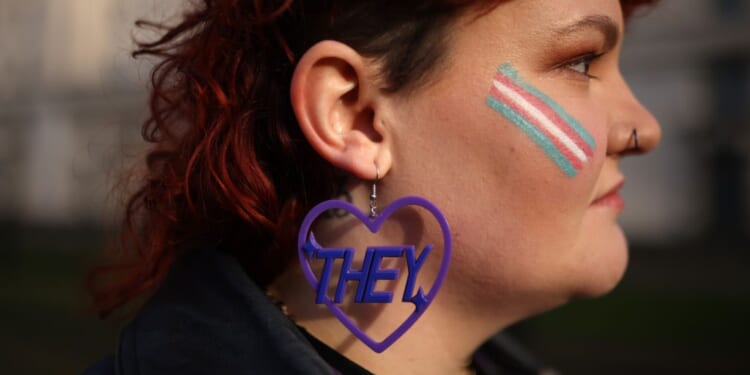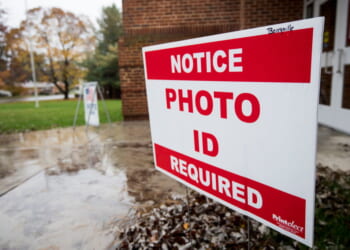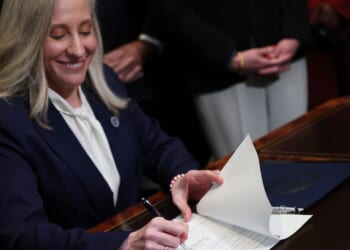Every night at a quarter to one, BBC Radio 4 plays “Sailing By”. The waltz, composed by the light-music maestro Ronald Binge in the Sixties, will be familiar to many listeners as the precursor to the shipping forecast. Its repetitive, slow lurch and bright flute arpeggios helped sailors to quickly identify the correct station — but “Sailing By” is not purely functional. Like the forecast and perhaps even the BBC itself, it has become kitsch. It is a song from the deep past, from an organisation whose reporters wore glasses with thick frames and spoke with clipped accents. Its interviews were slow and intense; stars and intellectuals discoursed with depth and ease and a cigarette dangling from the hand. Then, almost every household had a radio; days were punctuated by six pips. The BBC was regarded, and certainly saw itself, as the best state broadcaster in the world.
This is not the BBC of today. Pleading for its very existence, the Corporation now plies TikTok and Facebook with behind-the-scenes-style ads to industriously promote arms such as BBC Verify. In one example — a hot mess of jump cuts and zooms to prod drooling scrollers awake — a young reporter holds up the kind of mic used by two-bit beauty influencers and gets real with us: “I know there’s a lot of mistrust in the news.” She tells us how “we piece together clues and get to the truth… examining videos frame by frame and even zooming in from space with satellite images”. A real humdinger, then, that this crack team of digital detectives didn’t catch the 50-minute splice in a video of Trump which has, just weeks after these ads went online, tanked the organisation’s credibility.
By now we are familiar with the facts. The 19-page death note from adviser Michael Prescott had raised existential concerns about not only the Capitol calamity but hopelessly biased reporting on the Israel-Palestine conflict by BBC Arabic: journalists who called for Israelis to have their “throats cut” or to shoot and burn Jews “as Hitler did” had appeared on the channel hundreds of times.
But nowhere has the public’s delicate contract with our state broadcaster been so relentlessly tested as in its coverage of gender identity. At the best of times, the BBC website is an obsessive compendium of drag queens. Take, for example, a round-up of top Wearside and County Durham stories from last month, which included “Family of murdered toddler plead for law change”. But heading the page is not the two-year-old Maya Chappell but the 27-year-old “Sally TM” from South Shields, who “slays” in a bodice and tutu in the colours of the Tyne and Wear Metro. This corker was not the result of a single push, but rather 1,000 nudges — misguided appointments, blinkered inclusivity training and, most of all, the privileging of what Prescott called a “small group of staff promoting the Stonewall view”.
It is these young ideologues who have fed the rot of the BBC’s queasy cultural revolution. These are politically intolerant grads who have somehow picked up the idea that the reporting of straight news by a state broadcaster must in itself work towards what they perceive to be “good”. One envisions them commanding standing desks at Broadcasting House in Lucy and Yak dungarees, spending many days and taxpayer pounds on the noble task of reporting Boomer colleagues to “People Services” for misgendering Sock at the front desk. Their laptops and lapels are festooned with stickers and pins which cry “Allyship is a verb”; “Nevertheless, she persisted”. And she does persist, in pestering bosses to pillory sex-realist colleagues like Martine Croxall for a roll of the eyes, in polluting work WhatsApp groups with tripe like “Shouldn’t trans women qualify for maternity leave though?”, and in being so aggressively “nice” about what she perceives as a marginalised cohort that she cocks up the fundamental accuracy of her own newsroom.
‘Their laptops and lapels are festooned with stickers and pins which cry “Allyship is a verb”.’
The deranged, flailing tail is wagging an old slumbering dog. This is how we ended up with seasoned reporters cowed into using the preferred pronouns of sex offenders so as not to upset non-binary striplings fresh out of Bristol Uni. Many managerial Boomers reared on Reithian principles are, in the words of one insider invective, “too cowardly to stand up to the DEI hires, woke warriors and sectarian antisemites on the staff”. And it can only result in repeated embarrassments.
Last month, before the latest debacle, the BBC falsely accused Euan Blair’s company Multiverse of nabbing a contract to roll out digital IDs (a policy long lobbied for by his father) in a script for Have I Got News for You. The production company’s founder Jimmy Mulville blamed “generations of younger producers who are coming into the business, and they are digital natives… they’re marinated in social media”. So marinated, it seems, that they take everything on there at face value. These bright-eyed dullards found the story on a freelancer’s X page and reported it — ventriloquised by the presenter Victoria Coren Mitchell — without any other verification. That this is the same cohort aggressively promoting a political agenda alien to the people the Corporation serves is no coincidence. Despite Monday’s spluttering protestations by the chairman Samir Shah on the Today programme, the problem does indeed seem to be cultural. Is it such a leap to imagine that the BBC’s hiring practices might be to blame, guidelines which see off wrongthink before staff even sign a contract? These guidelines oblige recruiters to quiz candidates on “what diversity and inclusion means to you” and explicitly bar those with “lack of interest in learning more where no evidence of education and understanding of [DEI] was given”. Diversity is our strength — except diversity of thought. Any sign of that and you’re sent packing off to GBeebies with the other cretins.
And so critics — cynically painted this week as the hostile Right-wing press — are left asking: who on earth is the BBC for? Despite constant advertisements reassuring us that the Corporation is “for everyone”, they cannot possibly mean the general public, whose scepticism about transgender rights, for instance, has ballooned since 2022. They cannot mean the dwindling segment of that public that still faithfully listens to its generally excellent radio output, or watches its terrestrial television — that is, the older generations rubbing their necks from the past decade of doctrinal whiplash. And they certainly can’t mean those who tune in to The Archers, baffled by a buffet of open relationships and Christian characters inexplicably fasting for Ramadan. There is still great love for the BBC, but an organisation that sees itself as reaching down to re-educate those with low-status beliefs from some progressive pulpit, the gleaming God to the British public’s decrepit, smelly Adam, does not deserve to last long.
Nor will it. Expecting a public whose views are so baldly despised by activist producers to cough up for a licence fee is a tough sell: at its heart, the BBC scandal is fatal precisely because we all pay for it. There is much to salvage in this cherished institution, much to protect. But choppy waters are ahead, and continued poor stewardship might just see the unthinkable — that “Sailing By” will play for one last time, diminished to a lovely dirge for a BBC dashed on the rocks by its own mariners.

















